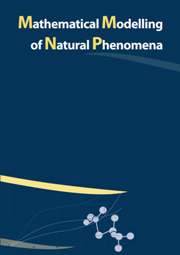Crossref Citations
This article has been cited by the following publications. This list is generated based on data provided by
Crossref.
Garcia-Barnes, J.
Gil, D.
Badiella, L.
Hernandez-Sabate, A.
Carreras, F.
Pujades, S.
and
Marti, E.
2010.
A Normalized Framework for the Design of Feature Spaces Assessing the Left Ventricular Function.
IEEE Transactions on Medical Imaging,
Vol. 29,
Issue. 3,
p.
733.
Garcia-Barnes, J
Andaluz, A
Carreras, F
and
Gil, D
2010.
Decoupled external forces in a predictor-corrector segmentation scheme for LV contours in Tagged MR images.
p.
4805.
Gil, D.
Borràs, A.
Ballester, M.
Aris, R.
Vázquez, M.
Martí, E.
Poveda, F.
and
Carreras, F.
2011.
MIOCARDIA.
p.
1.
Marquez, Patricia
Gil, Debora
and
Hernandez-Sabate, Aura
2011.
A confidence measure for assessing optical flow accuracy in the absence of ground truth.
p.
2042.
Carreras, Francesc
Garcia-Barnes, Jaume
Gil, Debora
Pujadas, Sandra
Li, Chi Hion
Suarez-Arias, Ramon
Leta, Ruben
Alomar, Xavier
Ballester, Manel
and
Pons-Llado, Guillem
2012.
Left ventricular torsion and longitudinal shortening: two fundamental components of myocardial mechanics assessed by tagged cine-MRI in normal subjects.
The International Journal of Cardiovascular Imaging,
Vol. 28,
Issue. 2,
p.
273.
Márquez-Valle, Patricia
Gil, Debora
and
Hernàndez-Sabaté, Aura
2012.
Computer Vision – ECCV 2012. Workshops and Demonstrations.
Vol. 7584,
Issue. ,
p.
124.
Bruurmijn, L. C. Mark
Kause, Hanne B.
Filatova, Olena G.
Duits, Remco
Fuster, Andrea
Florack, Luc M. J.
and
van Assen, Hans C.
2013.
Functional Imaging and Modeling of the Heart.
Vol. 7945,
Issue. ,
p.
284.
Márquez-Valle, Patricia
Kause, Hanne
Fuster, Andrea
Hernàndez-Sabaté, Aura
Florack, Luc
Gil, Debora
and
van Assen, Hans C.
2015.
Statistical Atlases and Computational Models of the Heart - Imaging and Modelling Challenges.
Vol. 8896,
Issue. ,
p.
231.
Ibrahim, El-Sayed
2017.
Heart Mechanics Magnetic Resonance Imaging.
p.
119.
Dufva, Melanie J.
Truong, Uyen
Tiwari, Pawan
Ivy, Dunbar D.
Shandas, Robin
and
Kheyfets, Vitaly O.
2018.
Left ventricular torsion rate and the relation to right ventricular function in pediatric pulmonary arterial hypertension.
Pulmonary Circulation,
Vol. 8,
Issue. 3,
p.
1.
Lehmonen, Lauri
Jalanko, Mikko
Tarkiainen, Mika
Kaasalainen, Touko
Kuusisto, Johanna
Lauerma, Kirsi
and
Savolainen, Sauli
2020.
Rotation and torsion of the left ventricle with cardiovascular magnetic resonance tagging: comparison of two analysis methods.
BMC Medical Imaging,
Vol. 20,
Issue. 1,
Imperiale, Alexandre
Chapelle, Dominique
and
Moireau, Philippe
2021.
Sequential data assimilation for mechanical systems with complex image data: application to tagged-MRI in cardiac mechanics.
Advanced Modeling and Simulation in Engineering Sciences,
Vol. 8,
Issue. 1,


